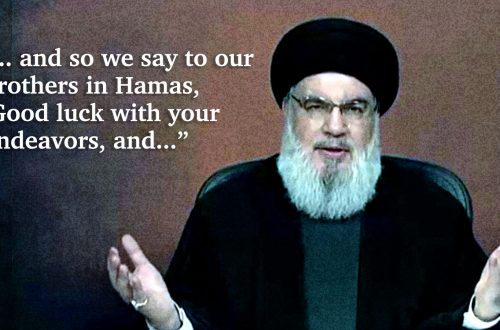It is somewhat presumptuous of me to comment on a book that I have not read, but for this purpose I am going to assume that Chas Newkey-Burden has not taken the following sentence from Melanie Phillips’ new book, The World Turned Upside Down: The Global Battle Over God, Truth, and Power (Encounter Books, 2010), out of context:
It is not an exaggeration to say that the position an individual takes on the conflict between Israel and the Arabs is a near-infallible guide to their general view of the world.
As a generalisation this is not unreasonable, although like all generalisations there are a number of exceptions. To provide an example, Newkey-Burden also refers to Phillips’ “approach to issues surrounding homosexuality.” We cannot tell from the knowledge of someone’s opinion on the Arab-Israeli conflict what their opinion would be of homosexuality. With some additional information, such as whether the person comes from a Marxist, a left-liberal, an Islamist, or a far-right background for an anti-Israel view, we can make a far more informed guess. Likewise, a staunchly pro-Israeli position hardly tells us anything on this subject, but we could be more confident with our guess if we knew if the person was secular or very religious. But even with this information it would still be a generalisation with exceptions. An example might be that a Marxist with an anti-Zionist view might be thought of as someone reasonably relaxed about homosexuality. This is not necessarily the case because as Michael Crick commented in his book Militant (Faber and Faber, 1984), members of the Marxist Militant tendency were often hostile to homosexuals and they thought that homosexuality was a problem that would disappear after the revolution.
In his book Waiting for the Etonians: Reports from the sickbed of Liberal England (Fourth Estate, 2009), Nick Cohen included an edited version of article that he had originally written for the Observer. In this article, Cohen stated:
When I was a reporter on the Birmingham Post & Mail, I could guess readers’ politics by how they described the looting and murder that overwhelmed Handsworth in September 1985. If they talked about the ‘Handsworth riots,’ I knew they were conservatives who had seen criminals go berserk…. Equally, I knew without needing to ask that those who talked of the ‘Handsworth uprising’ or ‘rebellion’ were on the left.
Cohen’s generalisation is also reasonable. We could make many more such generalisations. For example, I could guess, with reasonable confidence in my assessment, the world view of someone if I was informed of their views on nuclear disarmament. A different example might be that I could have a very good guess about someone’s world view if I was informed that their daily newspaper of choice was the Guardian.
And it is because of this that I have a problem with Phillips’ formulation. Accurate as it is, it places the Arab-Israeli conflict at the very centre of someone’s world view when it is not necessarily the case. It might be true that the vast majority of those who have an anti-Israel position in the Arab-Israel conflict have, as an example, an opinion that the Iraq war that commenced in 2003 was wrong, but the opposite case can be made as well: those that were against the Iraq war are more likely to have an anti-Israel view. What came first, the chicken or the egg? Melanie Phillips leads her readers to an answer in the way she has made her statement, and I am not convinced that this answer is correct.


